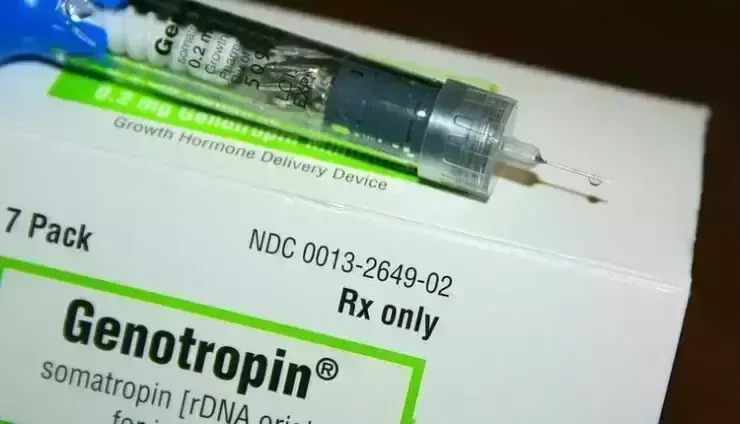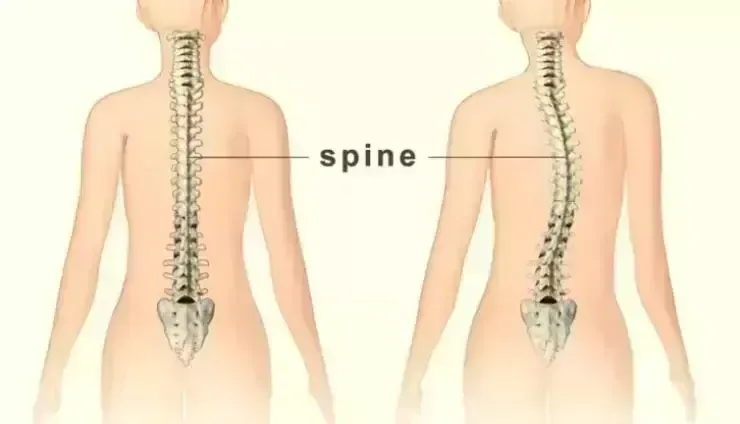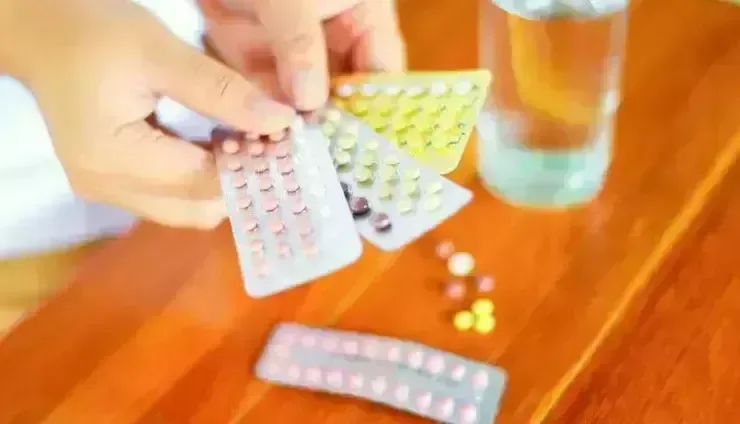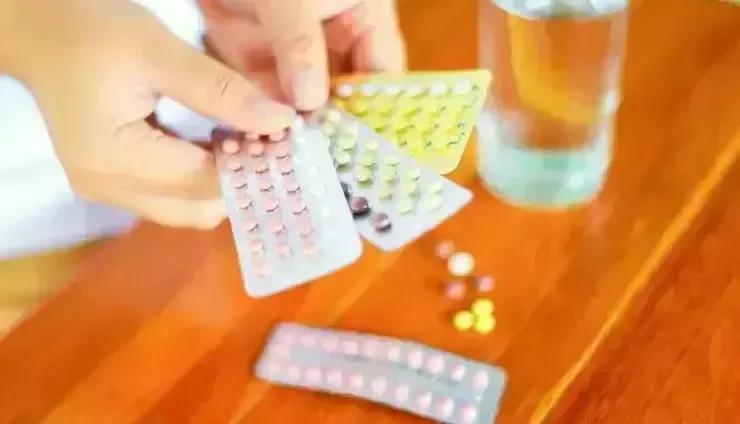Genotropin Hgh is used to treat growth hormone insufficiency in people of all ages. What are the Genotropin side effects? Also, when using Genotropin, there are several things you should avoid doing.

What is genotropin?
Genotropin is a type of human growth hormone ( hgh ) that promotes bone and muscular growth.
Genotropin is a synthetic growth hormone that is used to treat growth failure in children and people who do not produce enough natural growth hormone. People with Turner syndrome, Prader-Willi syndrome, small stature at birth with no catch-up growth, and other factors fall into this category.
Genotropin can be used for a variety of other things that aren’t covered in this pharmaceutical guide.
Contraindications to the use of genotropin
If you have cancer, diabetic retinopathy, or are being treated for Prader-Willi syndrome and are overweight or have significant breathing issues, you should not use Genotropin. If you have a serious sickness caused by lung failure or consequences from recent surgery, accident, or medical trauma, you should not use this prescription.
Important tips before taking genotropin

If you are allergic to Genotropin or benzyl alcohol, or if you have any of the following conditions, you should not use Genotropin.
- a life-threatening sickness caused by lung failure or consequences from recent surgery, accident, or medical stress;
- malignancy that is currently active
- Diabetes-related vision problems (diabetic retinopathy) or
- You are overweight or have severe respiratory problems and are being treated for Prader-Willi syndrome (including sleep apnea).
If you’ve ever had any of the following, tell your doctor:
- melanoma (especially during childhood)
- diabetes
- Sleep apnea, breathing issues
- a problem with the pituitary gland
- spine curvature that is abnormal (scoliosis)
- thyroid that is underactive
- a brain tumor or a head injury
Radiation therapy for children with brain cancer.
Genotropin should not be used in children in some instances. In very small newborns or premature babies, certain kinds of somatropin include a component that can cause major side effects or death. Do not give this medication to a youngster without first consulting a doctor.
If you’re pregnant or breastfeeding, let your doctor know.
In very young or preterm babies, Genotropin may include a chemical that can cause major negative effects including death. Do not give this medication to a youngster without first consulting a doctor.
What is the best way to use genotropin?
The dose and brand of somatropin you take, as well as how often you take it, are determined by the ailment you’re treating. Read all drug guides or instruction sheets and follow all guidelines on your prescription label. Follow the medication’s instructions to the letter.
Genotropin is given as an injection into a muscle or via the skin. You can learn how to use the drug properly on your own with the help of a healthcare expert.
Any instructions for use that came with your medicine should be read and followed carefully. If you don’t understand all of the directions, don’t use Genotropin. If you have any concerns, talk to your doctor or pharmacist.
Only prepare your injectable when you’re ready to administer it. The drug should not be shaken. If the drug is hazy, has changed colors, or has particles in it, do not use it. For new medication, contact your pharmacist.
Only use the syringe, cartridge, or injection pen that came with your medicine to administer it.
Medical testing may be required on a regular basis.
To help regulate your disease, follow any diet plan given by your doctor or nutrition counselor.
The way you keep this medicine is determined by the brand of Genotropin and the diluent you’re using. If you have any questions about how to store your prescription properly, talk to your pharmacist.
After the expiration date on the label has past, throw away any Genotropin that is left over.
Only use a needle and syringe once before storing them in a puncture-resistant “sharps” container. Follow your state’s or municipality’s regulations for how to dispose of this container. Keep it out of children’s and pets’ reach.
Information about how much Genotropin to take.
What happens if I forget to take a dose?
Use the medicine as soon as possible, but if your next dose is approaching, skip the missed dose. Do not combine two dosages at once.
If you miss more than three doses in a row, contact your doctor.
What happens if I take too much?
Seek emergency medical help or dial 1-800-222-1222 to reach the Poison Help line.
Tremors or trembling, cold sweats, increased hunger, headache, tiredness, weakness, disorientation, fast heartbeat, and nausea are all symptoms of an overdose. Excessive growth may result from long-term overdosing.
What should I stay away from while using Genotropin?
If you’re taking Zorbtive to treat short bowel syndrome, stay away from fruit juices and carbonated beverages.
If you have short bowel syndrome, you should avoid consuming alcohol. Alcohol irritates your stomach and may aggravate your illness.
Effects of genotropin
If you experience hives, difficulty breathing, or swelling of your face, lips, tongue, or neck, get immediate medical attention.
Patients with Prader-Willi syndrome who use Genotropin may experience serious breathing issues. If you have Prader-Willi syndrome, contact your doctor right away if you experience symptoms including shortness of breath, coughing, or new or increased snoring.
If you have any of the following symptoms, consult your doctor right once:
- Knee or hip pain, or a limp when walking
- pain, swelling, warmth, or discharge in the ear
- tingling or numbness in your wrist, hand, or fingers
- Hands and feet with considerable edema or puffiness
- alterations in conduct
- odd headaches, vision problems
- a change in a mole’s form or size
- Inflammation or soreness in your joints
- Pancreatitis causes intense discomfort in the upper stomach that spreads to the back, as well as nausea and vomiting.
- increased thirst, increased urination, dry mouth, fruity breath odor; elevated blood sugar—increased thirst, increased urination, dry mouth, fruity breath odor
- severe headaches, ringing in the ears, dizziness, nausea, vision problems, pain behind the eyes; or increased pressure inside the skull—severe headaches, ringing in the ears, dizziness, nausea, vision problems, pain behind the eyes or
- Extreme weakness, severe dizziness, weight loss, changes in skin tone, and a general feeling of weakness or exhaustion are all symptoms of an adrenal gland dysfunction.
The following are some of the most common negative effects:
- Where the drug was injected, there was discomfort, itching, or skin changes
- fast weight increase, swelling
- ache in the muscles or joints
- tingling or numbness
- stomach ache and gas
- back discomfort, or a headache
- Symptoms of a cold or flu include a stuffy nose, sneezing, sore throat, and ear ache.
This is not an exhaustive list of potential adverse effects; more may arise. For medical advice on side effects, contact your doctor. You can contact the FDA at 1-800-FDA-1088 to report side effects.
Effects of Genotropin (more detail)
Drugs that interact with Genotropin

When Genotropin Hgh is used with other medications, it can induce drug interactions. These drugs can cause unexpected side effects, such as:
- Pills for contraception.
- Dexamethasone and prednisolone are examples of steroid drugs.
- Insulin.
- Medications for diabetes that are taken orally.
- vitamins
- items made from herbs
This is not an exhaustive list. Other pharmaceuticals, including as prescription and over-the-counter medications, vitamins, and herbal items, may interact with Genotropin. This list does not include all probable medication interactions.
When is the ideal date to take the drug Genotropin?
The best time for this is before bed.
What foods increase growth hormone naturally?
Foods rich in melatonin, such as: eggs, fish, tomatoes, grapes, and mustard seeds.
When is it preferable to start treatment with growth hormone?
From 3 to 4 years old.
